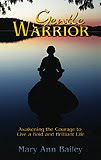
Now that Thanksgiving has come and gone, there is no doubt that the holiday season is in full swing. For some of us, the holidays are a wonderfully joyous time spent with our friends and family. For others, this time of year is filled with great sadness and loneliness. However, for most of us, the holidays fall somewhere between these two extremes. Many of us start the season off with very high hopes and good intentions, only to find that somewhere along the way our hopes get a little deflated and our intentions get a little sidetracked.
Each year as the holidays approach, all sorts of articles appear in magazines and newspapers on "How to Survive the Holidays". Many of the articles are focused on how not to gain weight, how to buy the perfect gift, or how to get along with your in-laws. Although these articles all offer very useful ideas and strategies, I am not sure they actually address the real issues behind why the holidays can be such an emotional rollercoaster ride for us.
I believe there are three things that get into our way of truly enjoying the holiday season. First, we try to do everything for everyone without taking time for ourselves. Second, we try to cram too many events into a short period of time. And third, we lose sight of what the holiday season is all about.
So, here is my version of “How to Survive the Holidays”.
1. Take time for yourself.
Make sure to schedule special time just for you throughout the holiday season. These do not have to be large chunks of time, but they do need to be times that you are alone, doing something that rejuvenates and re-energizes you. It could be a quiet bath, a walk, a massage or going to see a movie – whatever it is that will recharge your battery. I know that it might seem selfish to take time off just for you during such a busy time of the year, but actually it’s being very thoughtful and kind. Just think about how much more pleasant and patient you will be with friends and family when you are not feeling frantic, rushed and exhausted.
2. Schedule Special Things You Want to Do
One of the reasons we get so frantic during the holidays is that we cram too many activities in a short time. All too often we end up saying, “I wish we had done that.” So, this year, make it happen. Sit down with your family and decide on 3 things you really want to do. Make sure that each family member has their voice heard. Try to choose a variety of events and then schedule them to make sure that happen.
3. Give of Yourself
The holidays are about giving, sharing and connecting with people. One of the best ways to rekindle a feeling of connection to people is to give of yourself, and the holidays are full of opportunities to do just that. Find something that really speaks to you and volunteer your time, talent, or treasure. Although it might be easy for you to just write a check to an organization, I suggest doing something that may stretch you a little more in terms of an emotional connection.
Help your local food bank deliver holiday baskets, play Santa Claus at a local children’s hospital, adopt a family, serve a meal at a homeless shelter, or drive an elderly person to church. There are so many opportunities for us to open our hearts and to feel reconnected with people. And it’s when our hearts are open, that we can be touched by the true magic of the season.
The holidays are a special time, and with an extra dose of awareness, intention, and compassion for both ourselves and others, they truly can be an enjoyable time.
The life I touch for good or ill will touch another life, and that in turn another, until who knows where the trembling will stop or in what far place my touch will be felt. – Frederick Buechner





